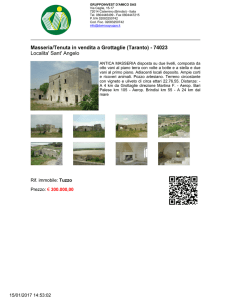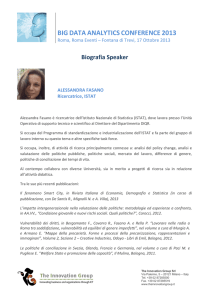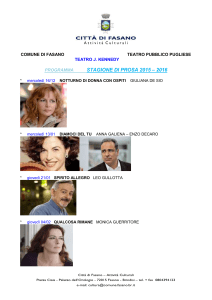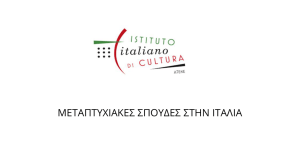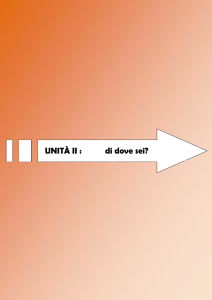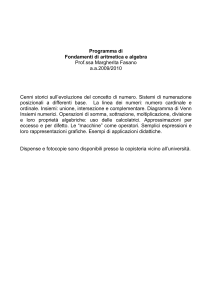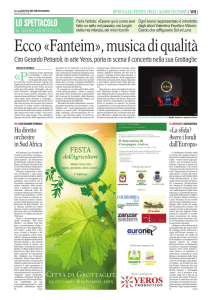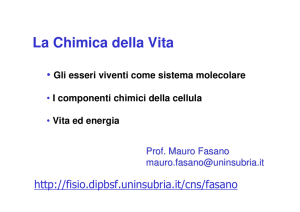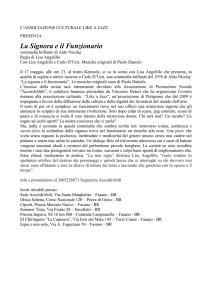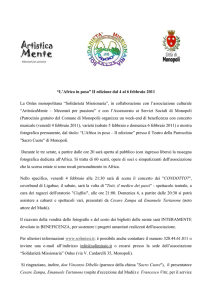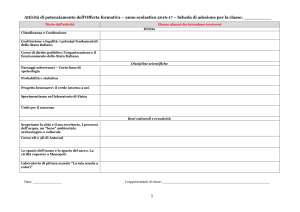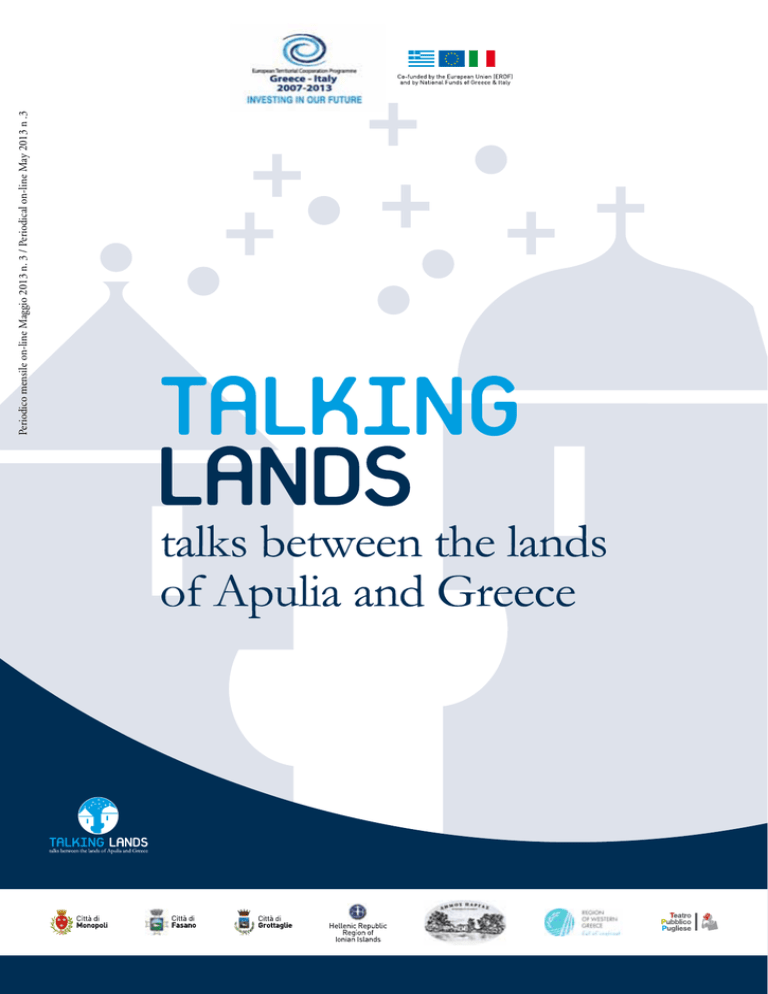
Periodico mensile on-line Maggio 2013 n. 3 / Periodical on-line May 2013 n .3
Il Web Journal Talking Lands è un
periodico on line dedicato ai temi della
narrazione frutto di ricerche su leggende
e tradizioni che legano Grecia e Italia; un
diario di viaggio per raccontare il Progetto, le sue attività e le peculiarità socioeconomiche dei territori coinvolti.
The Web Journal “Talking Lands” is an
online magazine dedicated to the narrative’s subjects which are the result of
research about legends and traditions
bonding Greece and Italy. A travel journal
that describes the Project, its activities and
the socio-economic characteristics of the
involved areas.
PUGLIA – GRECIA: ULIVI,
ELEMENTO DI UNIONE E
DIALOGO
APULIA - GREECE: OLIVES,
ELEMENT OF UNION AND
DIALOGUE
Se proviamo a unirle sulla cartina Monopoli, Fasano e Grottaglie formano un immaginario triangolo. Territori tanto vicini
e simili, eppur così diversi tra loro.
Ad unirli ci pensa la campagna pugliese, ricca di ulivi secolari,
che contraddistinguono in modo predominante il paesaggio.
In Puglia, infatti, si contano circa 60 milioni di alberi, di cui
più della metà sono considerati ulivi secolari: sculture astratte
modellate da pioggia, sole, vento che attirano lo sguardo e
l’attenzione di cittadini e turisti.
Alberi, gli ulivi, che rientrano a pieno titolo anche nel paesaggio greco. Ecco quindi che la natura è un elemento di unione
e dialogo tra le terre che si affacciano sullo stesso mare e che
stanno portando avanti il progetto Talking Lands. Ma torniamo al triangolo Monopoli, Fasano, Grottaglie per scoprire
qualcosa in più. Monopoli possiede un centro storico di origine alto medievale e si affaccia sul mare, circondato da mura,
con uno dei porti più attivi e popolosi della regione.
È chiamata la città delle cento contrade, con masserie fortificate, chiese e insediamenti rupestri in ogni dove. Meno di 20
km più a sud si cambia provincia, passando da Bari a Brindisi,
e si incontra Fasano, su quella che era l’antica via Traiana. La
città è nota per la Vittoria contro i Turchi del 2 giugno 1687.
Si narra che in quell’occasione la Madonna apparve ai fasanesi
per guidare la loro opposizione contro i pirati turchi, sbarcati
di notte con l’intento di saccheggiare la città.
Fasano segna il confine con il Salento, e spostandoci ancora
verso l’interno, o meglio verso la costa più occidentale del tacco d’Italia, nella provincia di Taranto, si arriva a Grottaglie.
La città sorge sul pendio di una collina delle Murge, all’estremità meridionale di quella Murgia dei trulli. Trulli che sono
la seconda caratteristica del territorio, nonché testimonianza
vivente della sua storia, che si uniscono e confondono con gli
ulivi per dare al paesaggio quelle caratteristiche che lo rendono unico al mondo. If we try to connect them into the map Monopoli, Fasano
and Grottaglie form an imaginary triangle. Territories so close
and similar, but so different from each other. To join them,
the Apulian countryside is involved, full of olive trees, which
characterize predominantly the landscape. In Apulia, in fact,
there are about 60 million of trees, of which more than half
are considered olive trees: abstract sculptures modeled from
rain, sun, wind which catch the eye and the attention of citizens and tourists.
Forest trees, olive trees, which characterize the Greek landscape, as well. Here then, that nature is an element of unity and
dialogue between the lands that overlook the same sea and
which are bringing forward the project Talking Lands. But,
let’s back to the triangle Monopoli, Fasano, Grottaglie to find
out more. Monopoli has a historic center of the early Middle
Age, overlooking to the sea, surrounded by walls, with one of
the most active and populous ports in the region.
It is called the city of a hundred districts, with fortified farms,
churches and settlements rock everywhere. Less than 20 km
further on South part the province changes from Bari to Brindisi to meeting Fasano, where once upon was the ancient “Via
Traiana” (Traiana road). The city is known for the Victory
against the Turkish on 2nd June, 1687. In that occasion, the
Virgin appeared to the people of Fasano to guide their opposition against Turkish pirates, landed at night with the intention to plunder of the city.
Fasano marks the border with Salento, and moving along toward the inside, mainly in the western coast of the “heel” of
Italy, in the province of Taranto, you meet Grottaglie. The
city lies on the hillside of Murgia, at the southern part of the
territory named “Murgia of Trulli”. “Trulli” are characteristic
buildings of this area, as well as animated testimony of its
history which mixing up with the olive trees, give to the landscape unique characteristics throughout the world.
TEATRO E MUSICA NELLA NATURA
THEATRE AND MUSIC IN THE GREAT OUTDOORS
PERCORSO RUPESTRE SULLE
TRACCE DI ORFEO
A RUPESTRIAN PATH ON
ORPHEUS’ FOOTSTEPS
PER AMORE SOLO PER
AMORE
Messo in scena per la prima volta nel 2005 con la direzione
dei docenti Teresa Liuzzi e Michele Iacovazzi, il dramma “Per
amore solo per amore” dedicato al mito di Orfeo e Euridice è
stato riportato alla ribalta con successo otto anni dopo il debutto dagli studenti dell’Istituto Superiore Leonardo da Vinci di
Fasano. Magicamente immerso nella bellezza commovente di
Lama d’Antico, un antico insediamento rupestre poco fuori Fasano, ricco di storia e perfetto per rinnovare il mito del dolente
Orfeo che cerca di riportare alla luce e alla vita la sua amata
sposa Euridice, nel verde dei boschi e giù fino agli antri scuri e
pericolosi dell’Ade. Messo in scena da 60 giovani, tra interpreti,
musicisti, attori e comparse, lo scorso 30 maggio 2013 con un
pubblico di oltre 200 persone: perfetto il set, perfetta la scelta
del momento storico, perfetta la storia da recitare, non solo
perché Orfeo ed Euridice sono un must della mitologia greca, ma anche perché lo spettacolo è stato strutturato sulle basi
fondanti la tragedia greca classica, ove troviamo musica, danza
e recitazione insieme, con la presenza continua del coro, che
recita in greco antico i versi di Saffo e Mimnermo nel prologo e
nell’esodo. Grazie alla tecnica allusiva sono stati inseriti brani di
differenti autori della letteratura greca, latina italiana e straniera
(Euripide, Catullo, Virgilio, Ovidio, Petrarca, Poliziano, Rilke
ecc.), con l’accompagnamento di alcuni famosi brani del cantautorato italiano (fra questi, Euridice di R. Vecchioni e Orfeo
di C. Consoli). Infine, ma non per importanza, gli incantevoli
violini sono stati l’impeccabile accompagnamento durante gli
spostamenti in questa stupenda cornice rupestre.
FOR LOVE,
ONLY FOR LOVE
Formerly staged in 2005 under the direction of high school teachers Ms. Teresa Liuzzi and Mr. Michele Iacovazzi, the drama
“For Love, only for Love” dedicated to the myth of Orpheus
and Eurydice has been successfully performed by the students
of Leonardo da Vinci High School of Fasano eight years after
its very first debut. Magically immersed in the touching beauty
of Lama d’Antico, an ancient Rupestrian settlement right in
the outskirts of Fasano, rich in history and perfect to renew the
myth of sorrowful Orpheus, trying to bring back to light and
life his beloved bride Eurydice, in the greenness of woods and
down to the dark and fearful caverns of Hades. Performed by
sixty young interpreters, musicians, main actors and extra ones
on May 30, 2013 with an audience of more than 200 people:
perfect set, perfect timing and perfect tale to put on stage, not
only because Orpheus and Eurydice is a must in Greek Mythology, but also because the performance is basically structured
on the assets of the classical Greek tragedy, in which we find
music and dance and acting all together with the permanent
participation of the chorus, which performs in the Greek language verses of Sappho and Mimnermo in the prologue as well
as in the exodus. By the technique of innuendo there have been
different authors “entries”, taken from Greek and Latin – Italian and foreign Literature (Euripides, Catullus, Virgil, Ovid,
Petrarch, Poliziano, Rilke and so on), and Italian songwriters
famous ballads (among these, Euridice by R. Vecchioni and
Orfeo by C. Consoli) have worked as soundtrack. Last but not
least, the enchanting violins have been the impeccable complement of the movements in the gorgeous Rupestrian landscape
throughout the play.
SPUNTI PER UNA NARRAZIONE DELLA STORIA
DELLA CERAMICA DI
GROTTAGLIE
IDEAS FOR ONE
NARRATIVE STORY
OF GROTTAGLIE’S
POTTERY
A conclusione dei Laboratori Urbani il regista Alfredo Traversa
ha incontrato nelle sale del Castello Episcopio di Grottaglie i
cittadini ed operatori culturali rendendoli partecipi di alcune
rilevanti novità rispetto ad un possibile racconto, ad una Narrazione della Storia della Ceramica di Grottaglie.
Diversi gli spunti che, non inseriti negli spettacoli conclusivi
dei Laboratori, hanno trovato spazio e modo di essere proposti proprio in questa occasione. Il regista ha infatti mostrato al
pubblico una vera e propria maschera realizzata in ceramica su
misura per lo stesso Traversa che l’ha indossata mostarndo così
quello che doveva essere un attore del teatro fliacico tipico del
periodo della Magna Grecia, ma, non solo, così facendo si è
voluta aprire la discussione sulla possibilità che la produzione
grottagliese possa prevedere anche la realizzaizone di vere e proprie maschere in ceramica per il teatro, così come sono esposte
nel Museo Nazionale di Taranto.
In conclusion of Urban Laboratory, the director Alfredo Traversa met in the halls of Bishop’s Castle in Grottaglie the citizens
and the cultural operators which have participated in a novelty
for possible story, a narrative story of Grottaglie’s pottery
Several ideas, not included in the final performance of the laboratory, have found their place by being proposed on that
occasion. In fact, the director has shown to the audience one
real ceramic mask made especially for him. Traversa put it for
showing how looked an actor in the “fliacico” theater (pertaining to the Fliaci, i.e. vagabond players) typical for the period
of Magna Graecia (Great Greece) and in this way was open a
discussion that the production of Grottaglie has the possibility
to realize real ceramic masks for the theater, as these exhibited
in the National Museum of Taranto.
Interesting but unknown circumstance is that the Grottaglie’s
pottery represents the link between the Messapian potte-
Interessante poi, e ai più sconosciuta, la circostanza che vuole un oggetto di ceramica grottagliese rappresentare l’anello di
congiunzione tra la ceramica messapica e quella greca. Proprio
a Grottaglie fu ritrovata una trozzella, un manufatto che riproduce per la prima volta delle figure (umane) e quindi si rifà
esplicitamente alla cultura greca. Quello che è curioso è che
tale oggetto si trovi nel Museo di Copenaghen in Olanda. Non
solo, questo ritrovamento e custodia si deve ad un produttore di birra. Taranto è famosa nel mondo anche per una birra
autoctona di nome Raffo, bene la famosa trozzella è custodita
grazie al birraio di Copenaghen, il signor Carslberg.
Di estrema attualità poi è risultata la narrazione sul mito di
Prometeo che diventa nel nostro territorio un uomo che tenta
di affrancarsi dal lavoro in bottega (del ceramista) per entrare
nell’industria dell’acciaio (ILVA): una realtà tipica del nostro
territorio che ha segnato diverse generazioni. Bene Prometeo è
nell’antica Grecia il protettore della metallurgia (ILVA) e della
ceramistica (GROTTAGLIE-CERAMICHE).
Non ultimo il forte legame culturale che lega il rito delle Baccanti con il rito delle Tarantolate. Rito oggetto di diverse pitture vascolari sia greche che grottagliesi.
Il regista si è soffermato sulla possibilità che il progetto Talking
Lands non si esaurisca con la realizzazione dello stesso, ma possa essere un continuo Laboratorio per gli anni futuri: un’occasione per parlare della nostra terra con altre terre ed anche un
punto di riferimento per studiosi ed appassionati del settore.
E tutto questo grazie alle tecniche del teatro di narrazione che
permettono di arrivare ad un pubblico molto più vasto interessando diversi settori e dando a tutti la possibilità di interfacciarsi con la storia facendone momento di crescita comune.
ry (Messapia is a territory between Murgia and Salento) and
Greek pottery. In Grottaglie was found a “trozzella” (a pottery
vase which generally had four little wheels at the summit and
base of its sharp angled handles) an artifact that reproduces for
very first time the human figures and refers to the Greek culture. A curious fact is that this object is exposed in the Museum
of Copenhagen in Netherlands. In addition, the discovery is
done by one brewer. Taranto is world-wide famous town for
its local beer named Raffo and the famous “trozzella” is wellpreserved thanks to the Copenhagen brewer Mr. Carslberg.
Very actual is then the story of the Prometheus myth, for a man
who is trying to work in the pottery but finally is entered in the
steel industry (ILVA): one typical reality for several generations
on our territory. In the ancient Greece, Prometheus was the
protector of the metallurgy (ILVA) and pottery (Grottaglie’s
pottery). Last but not at least, there is a strong cultural relation
between the “Baccanti” rite and “Tarantolate” rite. These rites
are subject of several paintings in Grottaglie and Greece.
The director is focused on the possibility that the project
Talking Lands does not end with its final implementation, but
can be an ongoing laboratory for the future: an occasion to talk
about our lands with other lands, a point of reference for scholars and enthusiasts. Thanks to the techniques of the narrative
theater is allowed to reach a wider audience by affecting different sectors and by giving everyone the opportunity to meet the
history as a moment of vigorous growth.
LO SCRITTORE GRECO A MUSICA
D’ATTRACCO
THE GREEK WRITER AT
“MUSICA D’ATTRACCO”
LA TESTIMONIANZA DI
VASSILIKOS
VASSILIKOS’S EXPERIENCE
L’eclettico scrittore greco Vassilis Vassilikos è stato ospite venerdì 10 maggio nell’auditorium del laboratorio di “Musica
d’Attracco”. L’incontro, presentato dalla docente di Lingua e
letteratura neogreca all’Università di Bari prof.ssa Marika Perlorentzou, ha visto la partecipazione di una attenta platea che
ha ascoltato l’affascinante testimonianza dello scrittore greco.
Vassilikos è il maggiore scrittore greco vivente, ha vissuto in
Italia ed è stato ambasciatore greco presso l’Unesco. La sua
attività conta oltre 90 pubblicazioni (dalla drammaturgia, alla
poesia, alla narrativa breve e al romanzo) ed è stata tradotta in
diverse lingue. Il suo romanzo “Z” è stato tradotto in 32 lingue ed ha avuto una celebre trasposizione cinematografica nel
film di Costantin Costa-Gavras “Z-L’orgia del potere” (premio Oscar come miglior film straniero, Premio della giuria al
22° Festival di Canne).
The versatile Greek writer Vassilis Vassilikos was guest at the
auditorium of the laboratory named “Musica d’attracco”, on
Friday, May the 10th.
An audience enchanted by the words of the Greek writer, participated at the meeting, that is been introduced by Marika Perlorentzou - professor of Modern Greek Language and Literature
at University of Bari. Vassilikos is one of the best contemporary
Greek writers. He lived in Italy and he was UNESCO Greek
Ambassador. His writing activity is made up of 90 publications
(from drama to poetry, fiction and novel) and is translated into
different languages. His novel “Z” has been translated into 32
languages and has inspired the movie “Z - The orgy of power”
directed by Costas Gavras (Oscar for “Best foreign movie” and
“Jury Prize” at the 22nd Festival of Cannes).
QUATTRO I SITI VISITATI IL 12 MAGGIO
ON MAY 12TH, GUIDED-TOURS AT
FOUR BASILIAN CRYPTS
Straordinaria partecipazione di Pubblico domenica 12 maggio per le visite guidate nelle cripte basiliane del territorio di
Monopoli e Fasano. Il gruppo, sotto la guida della prof.ssa
Maria De Mola, ha visitato in mattinata le cripte di San Procopio nel territorio di Monopoli e le cripte di San Lorenzo e
Lama d’antico di Fasano. Nel pomeriggio la visita si è conclusa nel sito dello Spirito Santo di proprietà del Comune di
Monopoli.
A great number of people took part in the guided-tours at basilian crypts within the territory of Monopoli and Fasano, on
Sunday, May 12th.
In the morning, the crowd led by the art historian Maria De
Mola visited the crypts of San Procopio in Monopoli and the
crypts of San Lorenzo and Lama d’Antico in Fasano.
In the afternoon, the sightseeing ended up at the crypt of Santo
Spirito, whose ownership belongs to the Municipality of Monopoli.
VIAGGIO NELLE CRIPTE A TRIP TO THE CRYPTS
IL 25 MAGGIO È ANDATO IN SCENA LO
SPETTACOLO PRINCIPALE DEL PROGETTO
ON MAY 25TH THE MAIN PERFORMANCE OF
THE PROJECT IS BEEN PLAYED.
PAOLO PANARO SULLE ORME PAOLO PANARO IN SAINT
NICHOLAS’S FOOTSTEPS
DI SAN NICOLA
Sabato 25 maggio nell’auditorium del laboratorio Musica d’attracco di via Procaccia a Monopoli è andato in scena lo spettacolo di narrazione “Vita, morte e miracoli dell’illustrissimo San
Nicola”, scritto, diretto e interpretato da Paolo Panaro con la
partecipazione del baritono Angelo De Leonardis. La consulenza
musicale è stata affidata a Angelo De Leonardis. Luci e coordinamento tecnico di Annalisa Pellegrini. Si tratta dello spettacolo principale del progetto Talking Lands,
replicato il 26 maggio a Fasano e il 27 maggio a Grottaglie presso
il Teatro Monticello. Panaro, specialista del genere, da oltre vent’anni incentra le sue
ricerche nell’ambito del teatro di narrazione, riadattando per la
scena capolavori di ogni tempo e recuperando episodi e vicende
della nostra tradizione. Per Talking Lands la sua ricerca si è incentrata sulla traslazione delle ossa di San Nicola. La tecnica del teatro di narrazione, il cunto meridionale e l’arte dei canterini lombardo-veneti, hanno un ruolo centrale nella
composizione di questo evento. All’interpretazione dell’attorenarratore si alterneranno brani musicali e liturgici della tradizione ortodossa e occidentale, che filologicamente e organicamente
accompagneranno lo sviluppo del racconto. La Puglia è stata provincia del vasto impero bizantino. Dopo la
caduta di Roma, per oltre cinque secoli i pugliesi hanno parlato,
mangiato, vestito, pregato, cantato come i loro vicini greci. Il
culto di San Nicola, ponte tra Oriente e Occidente, è la testimonianza più forte di quel tempo. La devozione per il Santo nasce
a Myra, ma presto si diffonde a Bisanzio per poi svilupparsi nel
resto d’Europa e negli estremi lembi della Russia ortodossa. Fra
le due sponde dell’Adriatico non c’è leggenda comune più famosa e amata di quella dell’Hyperagios (il supersanto). Ancora oggi,
San Nicola è l’unico santo in grado di compiere il miracolo del
riavvicinamento tra la Chiesa cattolica e quella Ortodossa, divise
dallo scisma di mille anni fa.
On Saturday May 25th, at the auditorium of the laboratory “Musica
d’attracco”, placed in via Procaccia, in the town of Monopoli, the
narrative show “Life, death and miracles of S. Nicholas the Greatest”, written, directed and interpreted by Paolo Panaro in collaboration with the baritone Angelo De Leonardis, is been performed.
Angelo De Leonardis was responsible for the musical consulting;
lights and technical organizing by Annalisa Pellegrini.
This was the main performance of “Talking Lands” project, that is
been repeated on the 26th May in Fasano and on the 27th in Grottaglie at Teatro Monticello.
Thanks to his experience of 20 years and more, Paolo Panaro focuses
his researches in the field of the narrative theatre with the adaptation
for stage performance of many masterpieces that belong to different historical periods and many events from our traditions. Within
“Talking Lands”, his researches focused on the translation of Saint
Nicholas’s bones.
The technique of narrative theatre, the Southern “cunto” and the art
of “canterini” from Veneto and Lombardia have played a key-role
within the planning of this event. An alternation between the interpretation of the actor-narrator and the musical and liturgical pieces
that belong to the orthodox and western traditions was organically
the soundtrack for the plot development.
Apulia region was a province within the huge Byzantine Empire. After
the fall of Rome, over five centuries, Apulian people and their Greek
neighbors spoke, ate, dressed, prayed and sang in the same ways. The
cult of Saint Nicholas, link between East and West, is the most evident
proof of those times. The devotion to him had origins in Myra, but it
spread fast in Byzantium and then it developed in the rest of Europe
up to the boundary lines of the orthodox Russia as well.
Between the two coasts of the Adriatic Sea, only the legend of the
“Hyperaghios” (the Greatest Saint) is the most popular and loved.
Still today, Saint Nicholas is the only saint, capable of making the
miracle of rapprochement between the Catholic and Orthodox
Churches, divided because of the schism thousand years ago.
CON SAKIS PAPADIMITRIOU & GEORGIA
SYLLEOU
WITH SAKIS PAPADIMITRIOU & GEORGIA
SYLLEOU
CANTI TRADIZIONALI
GRECI E DELL’EGEO
TRADITIONAL SONGS FROM
GREECE AND THE AEGEAN
SEA
Concerto di canti tradizionali greci e dell’Egeo sabato 18 maggio al Castello Carlo V di Monopoli con Sakis Papadimitriou
& Georgia Sylleou. Un’interpretazione aperta ed inconsueta
ma anche molto vicina agli antichi originali che ha incantato
il numeroso pubblico intervenuto.
Sakis Papadimitriu è giornalista, scrittore e musicista. Ha lavorato a lungo per la Radio di Stato greca. Ha composto musica per il teatro ed è un punto di riferimento per la musica
jazz nel suo paese. Ha pubblicato più di 15 incisioni e 2 doppi
album e ha suonato in importanti festival, anche di jazz, in
tutto il mondo. Si è occupato della riscoperta della musica
tradizionale greca e dell’Egeo.
Georgia Sylleou ha studiato musica e canto in Grecia, Austria
e Olanda. Come solista ha cantato per l’Orchestra di Stato
della città di Salonicco e per l’Orchestra e il Coro della Radio
Greca, oltre che in diverse importanti ensembles, in importanti festival in tutto il mondo. È interessata all’uso della voce
nella musica contemporanea. Il suo primo libro di racconti
“At the Cape” è stato pubblicato nel 2012.
A concert of traditional songs from Greece and the Aegean Sea
is been held on Saturday, May 18th at Charles the 5th Castle in
Monopoli with Sakis Papadimitriou and Georgia Sylleou. It
consisted of an open and unusual interpretation, similar to the
old original ones that spellbound the crowded audience. Sakis
Papadimitriou is a journalist, writer and musician. He worked
for a long time at Hellenic National Radio Station. He was the
composer of many musical pieces for theatre and he is a greatest
jazz musician in his country. He recorded 15 tracks and two
double music-albums. He played in many important festivals,
jazz as well, all over the world. He focused his researches on the
recovery of Greek and Aegean popular music.
Georghìa Sylleou studied music and singing in Greece, Austria
and Netherlands. She worked as a solo-artist at the national
Orchestra of Thessaloniki, at the Orchestra and Chorus of the
Hellenic Radio, in many important ensembles and in many
relevant festivals all over the world. She’s interested in the use
of the voice within the contemporary music. Her first book of
short tales entitled “At the Cape”, is been published in 2012 .
PATRASSO
ΟΙ ΠΟΛΕΙΣ ΞΕΧΝΑΝΕ;
PATRASSO
DO THE CITIES FORGET?
Τα εργαστήρια αφήγησης που υλοποιούνται από την
Περιφέρεια Δυτικής Ελλάδας εστιάζουν στο θέμα της
Ιταλικής παροικίας των Πατρών που αποτελεί ένα εξαιρετικά
ενδιαφέρον όσο και σχετικά άγνωστο θέμα που επηρέασε
βαθύτατα τη ζωή και τη φυσιογνωμία της Πάτρας.
Οι δύο ομάδες αφήγησης εργάζονται πάνω στους
ακόλουθους άξονες:
1. Έρευνα και συλλογή στοιχείων για την Πάτρα, που αφορά
μια περίοδο από το 1850 [εποχή που πρωτοήρθαν οι Ιταλοί ]
έως το 1970, όπου προσπαθούμε να ανασυνθέσουμε τις
εικόνες και τη φυσιογνωμία της πόλης
2. Συλλογή συνεντεύξεων από Πατρινούς με Ιταλικές ρίζες,
που αφορούν ιστορίες προσωπικές, αλλά και μνήμες από
την καθημερινότητα και τις δραστηριότητες της Ιταλικής
παροικίας.
Κάθε μέλος των ομάδων αφήγησης έχει αναλάβει μια
δεκαετία και φτιάχνει μια ιστορία για την Πάτρα, όπου μέσα
από την αφήγηση να βγουν τα γεγονότα, η εικόνα και το
άρωμα της πόλης έτσι όπως αυτή αλλάζει διαρκώς .
Ακολουθεί η σύνθεση των ιστοριών που προέκυψαν από
το εργαστήριο αφήγησης και των συνεντεύξεων των
Ιταλοπατρινών από τον ηθοποιό και σκηνοθέτη Μιλτιάδη
Νίκα, σε ένα ενιαίο κείμενο που θα αποτελέσει το τελικό
κείμενο της παράστασης.
Στόχος του τελικού κειμένου και της παράστασης είναι
μιλήσει για τη μνήμη. Τη μνήμη αυτών των ανθρώπων μιας
πόλης που μεγαλώνει και αλλάζει. Μπορεί η μνήμη των
ανθρώπων να ξεθωριάζει αλλά η πόλη πάντα θα θυμάται
τους ανθρώπους που έζησαν σε αυτήν.
Η παράσταση «Patrasso Οι Πόλεις Ξεχνάνε»; που θα
σκηνοθετηθεί από τον Μιλτιάδη Νίκα, θα έχει μουσικές
και τραγούδια ιταλικά και ελληνικά που ακούγονταν στην
κάθε εποχή, καθώς και πρωτότυπα video από τον σκηνοθέτη
Παναγιώτη Φαφούτη.
The narrative workshops of Western Greece Region focus on
the Italian Community of Patra which constitutes an impressively interesting and unknown aspect as well of Patra’s physiognomy.
The two teams work on two axis of research:
1. Research and collection of information for Patra, starting
from 1850 until 1970 (the period of the first settlement of Italians), trying to recreate the city’s image and physiognomy.
2. Collection of interviews with deeply rooted Italian citizens
with reference to their personal stories, memories and activities
of daily life in the Italian community.
Every team member is engaged in decade research and will create a story for Patra through which the image and the right
scent of the city emerges and constantly changes.
Then Mr. Nikas, a director and actor, will combine the different stories into a cohesive template that will constitute the
final script of the Play.
The main objective of this final document is to speak for memories- the memories those citizens have from the growing and
changing city.
People’s memory may fade out but the city always remembers
the people who lived in it. The narrative play “Patrasso The Cities forget?” will be directed by Miltiadi Nika with music from
Italian and Greek songs heard during the different decades, and
with innovative video created by the director Panagioti Fafouti.
INFO
Teatro Pubblico Pugliese
via Cardassi, 26 7012 Bari
tel. 080.5580195
[email protected]
www.teatropubblicopugliese.it

